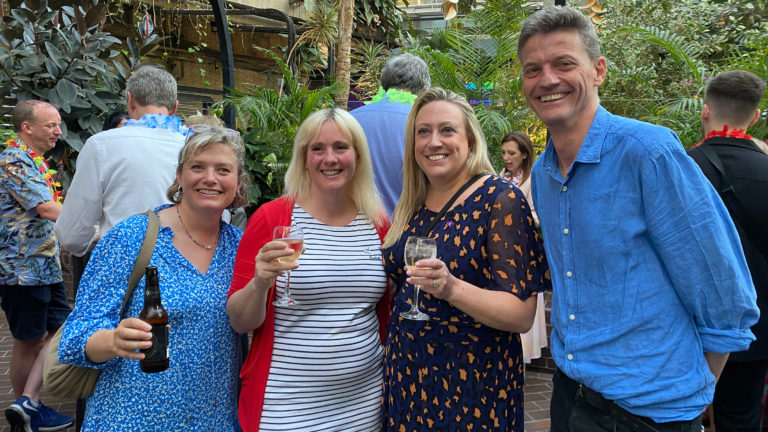CPL One’s managing director assesses the implications of generative AI for the agency and our clients.
I’ve made a few rash promises in my time.
However, few have been rasher than when I promised colleagues I would “draft a short, simple blog in the next couple of weeks” summing up CPL One’s position on iterative AI (and ChatGPT in particular).
That was more than a month ago. So why the delay?
Apart from the obvious reason that we have a lot of other stuff happening at the moment, it’s also extremely hard to write anything useful on this subject that is either “short” or “simple”.
In the past few weeks, a dedicated section of my inbox has become packed with links to relevant pieces on ChatGPT and its ilk. And my notebook has filled up with plenty of scribbled thoughts about the pros and cons. (I suppose I could have asked ChatGPT to have a go at summarising what I’d written, but surely no robot will ever be able to interpret my shocking shorthand!)
Since I wrote a few lines about the subject in March, it has continued to grab the headlines.
We’ve had plenty of warnings about the risks, including from Elon Musk and Google’s so-called ‘AI godfather’, shortly before the company announced its latest iteration of AI updates designed to rival ChatGPT.
Closer to home, a session at a recent Content Marketing Association summit attended by CPL One-ers featured some cautionary tales about data breaches, lack of transparency and IP issues. Another colleague pointed out this podcast from John Oliver which is, in equal measure, funny and scary.
Some of the other commentary has also been funny but, thankfully, rather less scary.
For example, The Guardian’s Alex Hern spent a week with ChatGPT to see if it would make him a “healthier, happier, more productive person”. (The answer – summarised by ChatGPT, obviously – was not a surprise: “While helpful, ChatGPT cannot replace the depth and authenticity of human interaction.”)
Meanwhile, colleagues at CPL One have continued to experiment with ChatGPT and other similar software, taking care not to trust all that it delivers for them.
One example saw an editor prompting ChatGPT to turn his quite heavyweight piece on a technical conference into “brilliant quotes for social media”. The result was pretty good – and the AI-generated words certainly took him less time to tidy up than if he’d drafted them from scratch.
So where does all this leave CPL One and our clients? Here’s five things I do believe and five I don’t.
I DO believe software like ChatGPT can:
- Drive efficiencies, especially in any type of proforma work
- Be one of a number of AI programs that will make web developers’ lives a little easier
- Speed up the initial stages of web-based research for our journalists and sales teams
- Help with a first stab at summarising and simplifying existing content
- Provide interesting career opportunities for anyone who makes themselves a skilled AI prompter.
I DON’T believe software like ChatGPT can:
- Be trusted to provide information that is either correct or original
- Replace highly skilled editorial and other professionals like those at CPL One
- Deliver work as creative, imaginative, fun or authentic as humans can
- Be a one-size-fits-all solution to sort out your content marketing challenges (but CPL One might be)
- Provide a reason for clients to try to negotiate reductions in fees charged by content marketing agencies!
We will continue to monitor the new iterations of generative AI as they emerge. And, even more importantly, we will continue to be incredibly proud of the fantastic, creative and individual work delivered day in, day out by the 70-plus humans at CPL One Group.





